【新唐人2011年11月25日訊】大陸從2008年年底開始,由中共中央組織部啟動「千人計劃」,從海外引進上萬名最高級別的戰略科學家,以及創新、創業的人才回大陸發展。許多人回到大陸後才發現,不如想像中美好,簽約時過高的承諾,在後續工作中兌現不了。
「千人計劃」計劃用5到10年時間,引進2000名海外技術人才,回到國內發展事業。這一項計劃,截至今年8月,共6200人申請,入選1510人。
今年上半年,中組部等相關機關委託專業調查機構對“千人計劃”實施情況,進行了問卷調查,根據調查報告,引進人才和用人單位平時反映較強烈的一個問題是:“國家沒有配套項目和經費,開展工作困難”。
“國家提出的優惠政策很難兌現”、“待遇落實工作不夠得力”也是被訪者較關注的問題,特別是人才家屬對各項特殊生活待遇的落實情況不夠滿意。
接受調查的海歸人才中,30.2%的人對繼續待在國內工作持觀望態度,4.8%的人明確表示準備再次出國。
北京憲政學者陳永苗:「國家政策即使是這麼高的,它如果具體落實到各地單位上,單位上可能不見得配套的會給這麼好的一個待遇。就是說,它會有一個美好的承諾,但實際上把你們拐回來了,要騙上賊船之後,那條件的差距就立即顯示出來了。它沒有辦法兌現它的承諾。那麼這一些回來的海歸他們這一個失落感就來了。」
專欄作家章天亮博士表示,如果有豐厚的薪水,可能有人願意回國發展,但他們一旦回國,能不能做出中共所需要的東西,並不取決於這些人本身的才能。
章天亮:「中國他是一個『官本內制度』,就是說他實際上並不是以你的能力強弱,來決定這個社會地位的高低,而是以一個政府的官員,或者掌握甚麼樣的職權來決定的。所以在這種情況下,那麼很多這種科技人員他們的研發成果不被中共的一些領導肯定,作為他們的一種政績,或者說,明明不是他研發的,因為它是領導,把它掛在一個研發的組織者,或者帶頭人這樣一個身份。在這種情況下,對中國這種研發實際上是一種很大的抑制。」
《中國經濟週刊》報導,自1978年以來,中國累計向外國輸送留學生、學者共計192萬人,回國只有63萬人,回歸率不足三分之一,而留美理工科博士畢業生等高質量人才的回國率僅為8%。
中組部調查發現,針對大陸的科研環境,受訪者的評價並不高。49%的人認為,大陸「研究風氣不好,把很多時間花在學術之外的公關活動上」;45.9%的人反映「科研專案審批不透明,存在拉關係、走後門現象」;40.1%的人坦言國內搞科研「人際關係太複雜,需要花大量時間處理」。
另外,調查表示,在生活上,「空氣、水污染嚴重」,「房價過高」和「食品安全」是人才及家屬擔憂的最主要問題。
章天亮:「國內空氣污染比較嚴重,你待遇再好,你錢再多,但是你呼吸的空氣是嚴重污染。再一個國內食品安全很是問題。可能你隨時就買到有毒的食品,或者慢性中毒,這些你根本就不知道。還有一種就是後代子女教育問題。因為現在國內不但是笑貧不笑娼,而且使這個社會非常的墮落。還有國內的關係非常複雜,不是說你有本事,就是全部投入研發,可能只有10%的精力投入研發,90%都在搞人際關係。」
章天亮表示,一旦回到那個土壤裡,或者是被這個體制所束縛,或者被這個體制所腐蝕,不能真正發揮自己的能力。
新唐人記者朱智善、唐睿、蕭宇採訪報導。
China』s “Thousand Talents Plan”
At the end of 2008, the Chinese Communist Party』s (CCP)
Central Organization Department started the “Thousand Talents Plan.”
It was created to attract tens of thousands
of high level scientists to return and work in mainland China.
After moving to China, many people realized the contract
was not as good as said, many promises were unfulfilled.
The “Thousand Talents Plan” wished to attract 2000 overseas
talents in the next 5-10 years to develop their careers in China.
Since August of this year, 6200 people signed up
and 1510 were selected.
In the first half of this year, the CCP Central Organization
Department did a survey on the effectiveness of the plan.
One issue strongly raised was, “Government did not provide
project』 support and funding, so it』s hard to start the work.”
“The special living accommodation the country promised
is hard to obtain,” was another issue.
Some of the relatives of the talents are not satisfied
with the living conditions too.
Among those who participated in the survey,
30.2% are waiting for the work conditions to improve.
However, 4.8% are sure they want to leave China again.
Chen Yongmiao (Beijing Political Sholar): “While the
government regulations are very good, they have to be implemented at each institution.
The institution might not have funding
for such high level of treatment.
More plainly, it (CCP) promised you lots of good things,
but after getting you in the country, the actual conditions are far from what』s promised.
It can』t implement what』s promised. Those who came
all felt discouraged after seeing the reality.”
Columnist Dr. Zhang Tianliang explained that if the salary
is very good, then some might wish to go back to China.
However, whether they can achieve what the CCP wants,
doesn』t depend on these people』s own abilities.
Dr. Zhang Tianliang: “China has an 『officials-based system,』
your own ability doesn』t decide your position in society.
A government official is in charge of deciding these things.
In this system, some technical staff
don』t get credit for what they develop or invent.
A government official will add his name
as a leader of the project and take credit for it.
This situation limits greatly scientific innovation
in mainland China.”
According to Chinese Economic Weekly, since 1978, China
has sent 1.92 million students and scholars abroad, but less than a third returned.
Among those with PhD in Science and Engineering
from the US, only 8% returned.
The CCP survey revealed low expectations
from the research environment in China.
49% believe the research attitude is bad in the mainland,
too much time is spent on public relations.
45.9% said approval process is not transparent,
many rely on connections.
40.1% believe interpersonal relationships
are just too complex and require too much time.
In addition, regarding living conditions, many of the relatives
are worried about air and water pollution, high real estate prices and food safety.
Dr. Zhang: “Air is very polluted in the mainland, doesn』t matter
if you make money, the air you breathe is heavily polluted.
Another issue is the food safety. You are likely to buy
poisonous food, or ones with harmful substances.
Another issue is education for kids.
The moral degradation in mainland China is very strong.
In addition, interpersonal relationships are very complex,
you can』t spend all your time on research,
the ratio is maybe 10% research,
90% interpersonal relationships.”
Dr. Zhang thinks, if you accept that system, it will corrupt you,
and you won』t be able to apply your skills and tallents too.
NTD reporters Zhu Zhishan, Tang Rui and Xiao Yu
看下一集
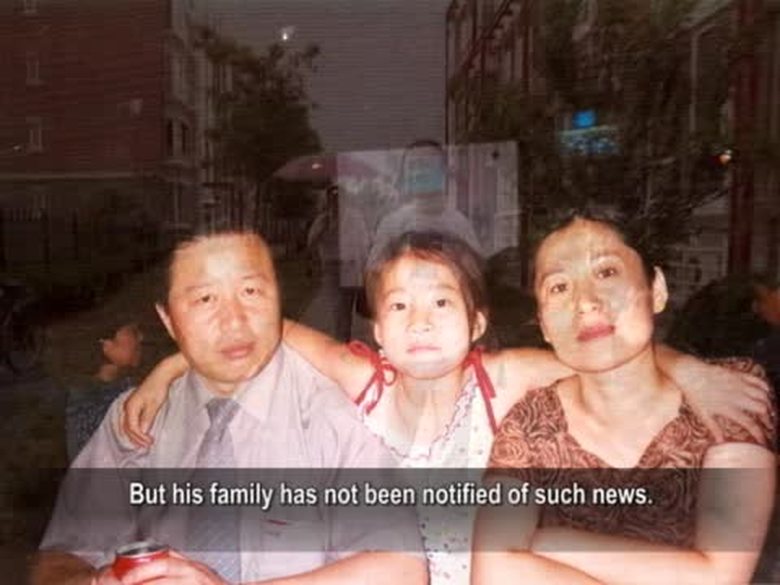
【禁聞】失蹤一年多 高智晟生死成謎
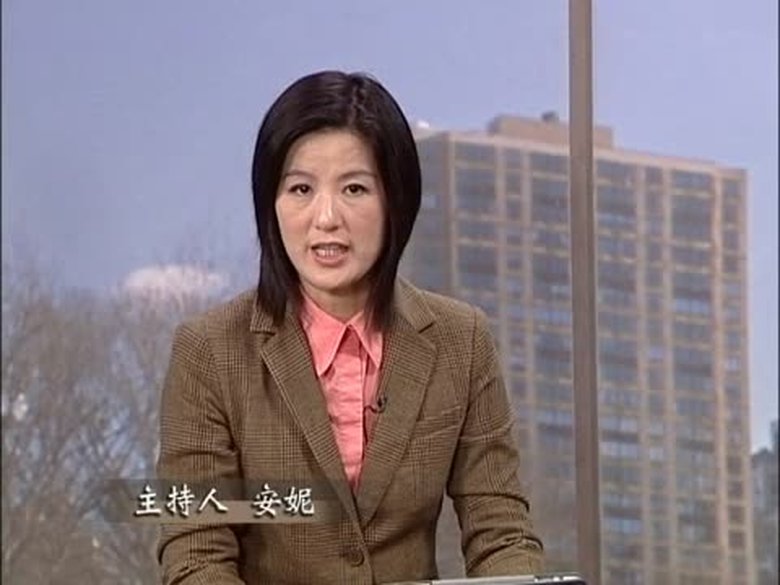
【禁聞論壇】中國真實的通脹率是多少?
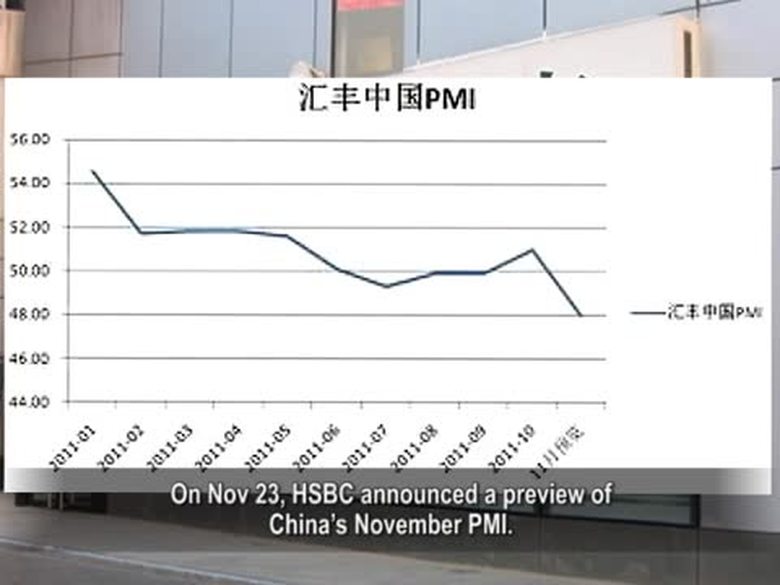
【禁聞】專家:中國製造業萎縮 滯脹前兆

【禁聞】民主人士: 關注陳光誠不「幫倒忙」
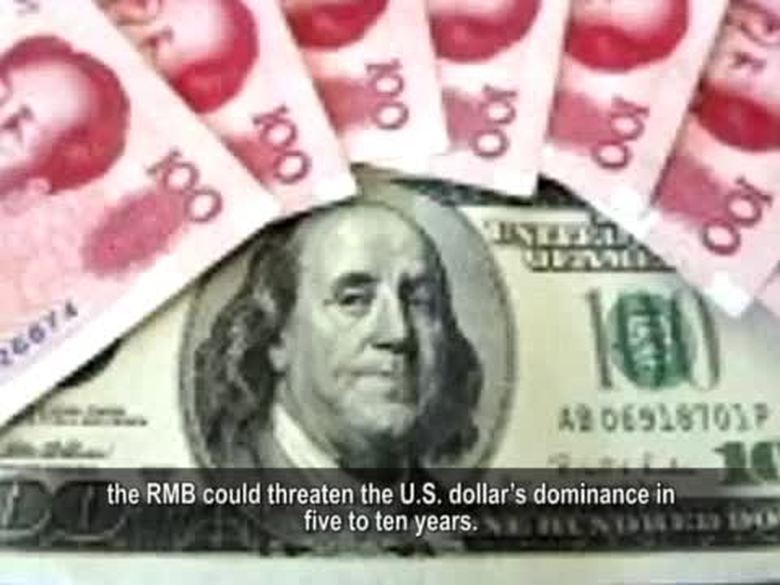
【禁聞】人民幣能匹敵美元 肥皂泡再現
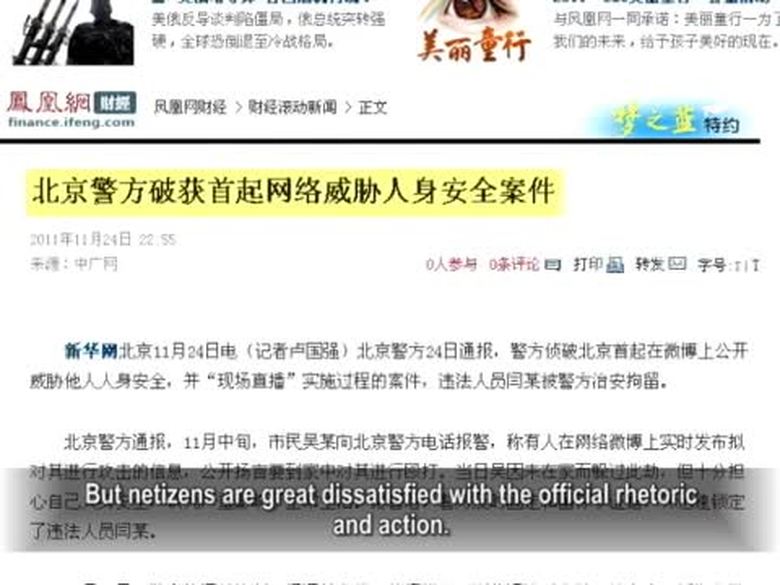
【禁聞】網上叫陣吳法天 健崔遭拘引質疑
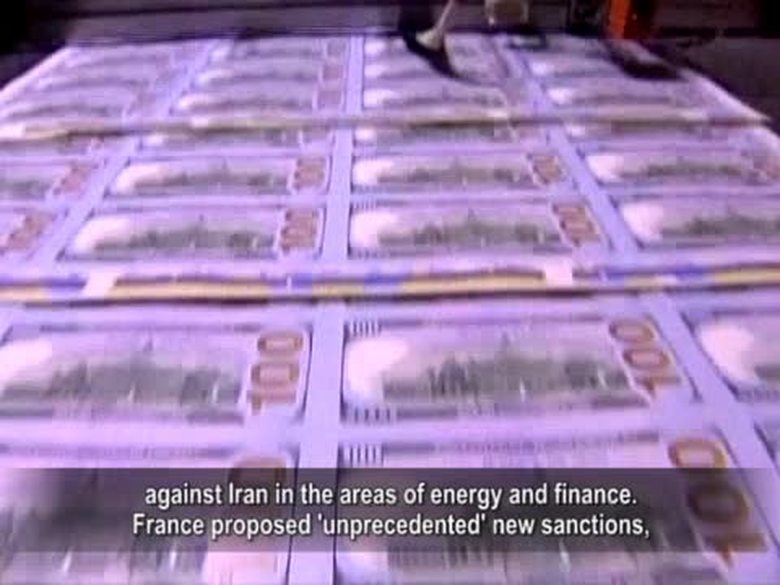
【禁聞】世界媒體看中國:反對制裁伊朗
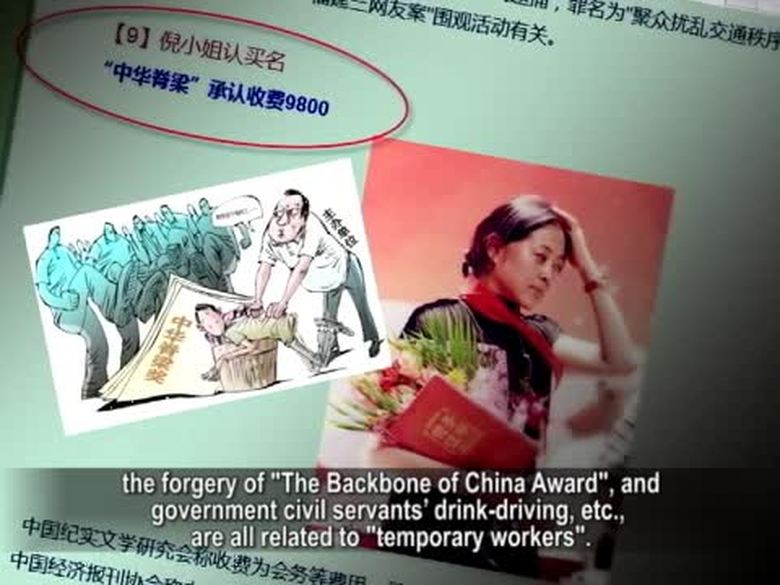
【禁聞】出問題 都是“臨時工”惹的禍?
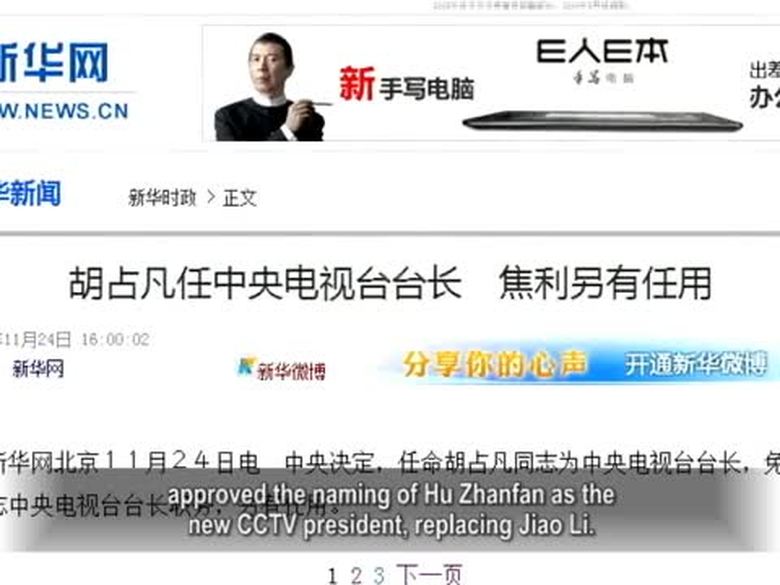
【禁聞】18大前央視換臺長 眾說紛紜引揣測
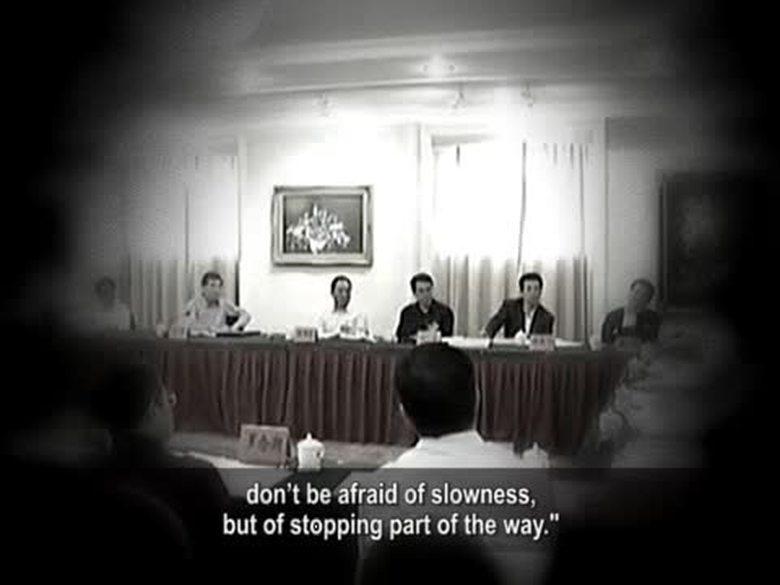
【禁聞】汪洋高談改革放權 習汪薄立場迥異
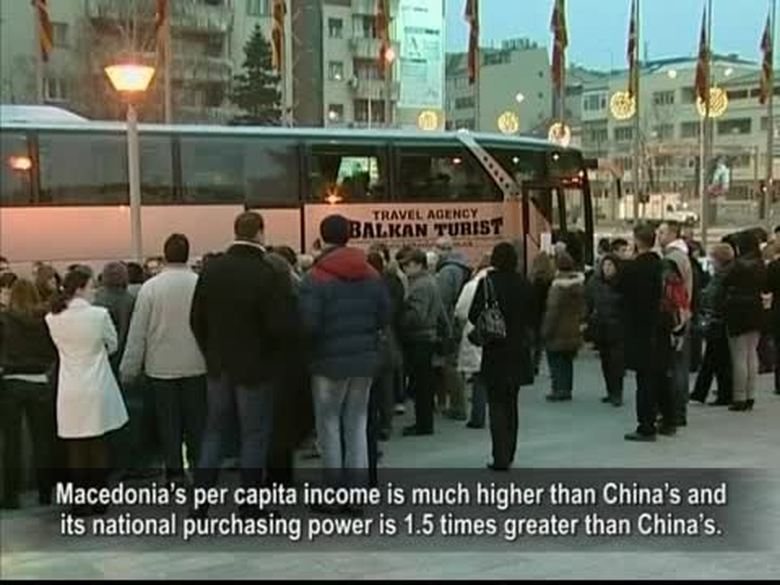
【禁聞】中國校車予馬國 中共外交成援交?
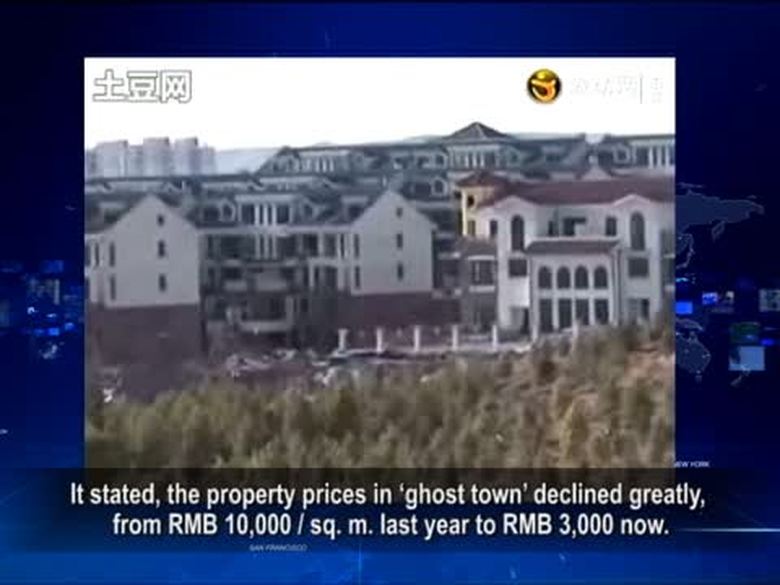
【禁聞】鄂爾多斯傳噩耗 房地產風暴臨近

【禁聞】疑替政府圈地 黃怒波冰島買地被拒
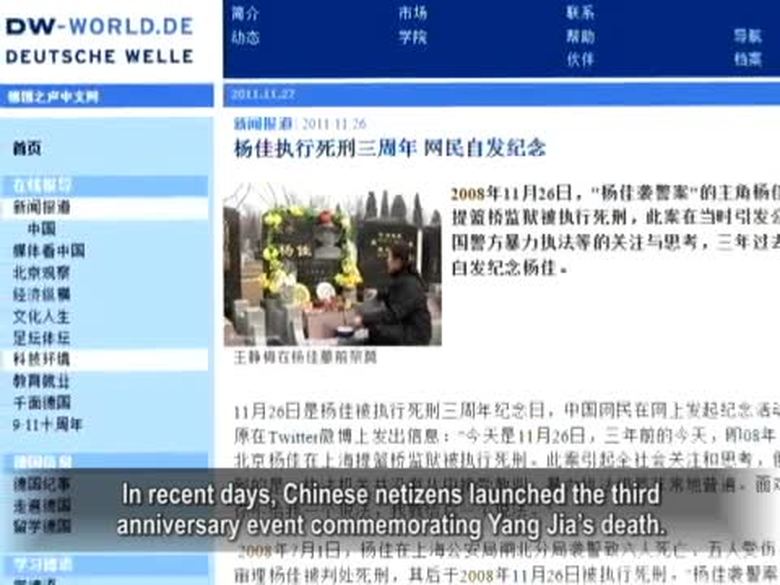
【禁聞】紀念楊佳 表達不滿
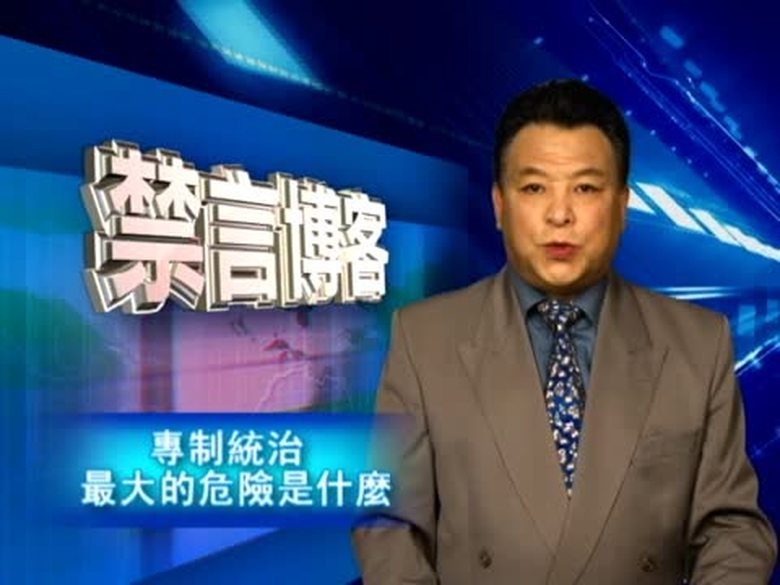
【禁言博客】專制統治最大的危險是甚麼
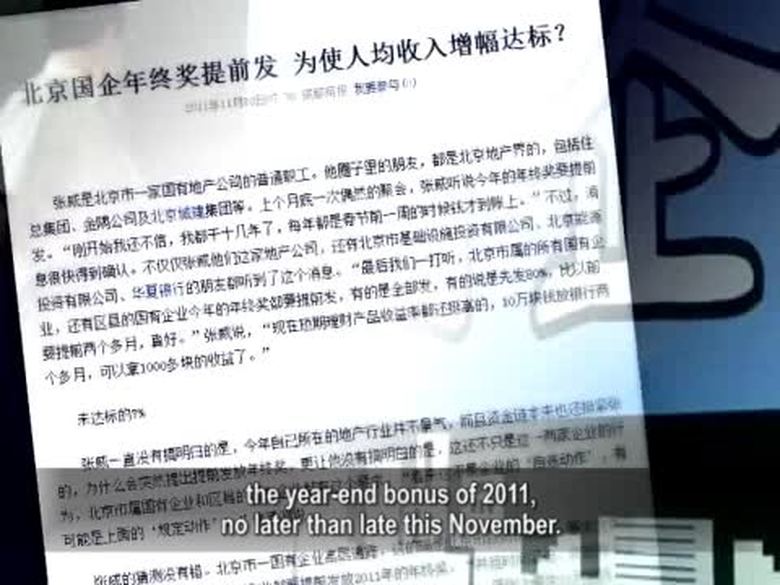
【禁聞】為保指標 北京令國企提前發年終獎








